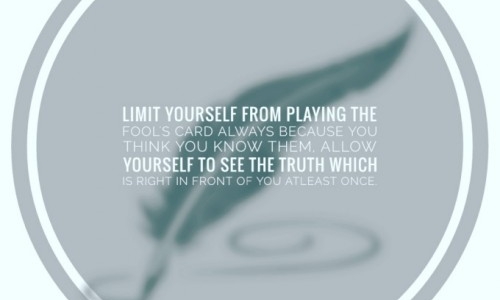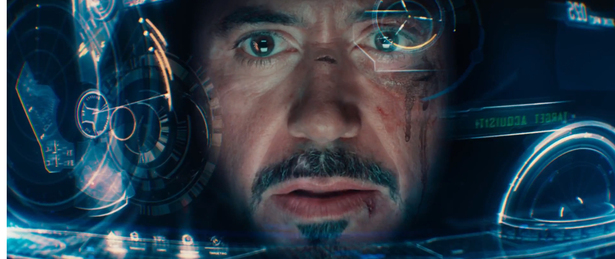
Why Children Got Blind Minded ?
Post By : Yedu Satheesh
Post Rank : 1479th
Category : Social-Mania
Sub Category : General News
26 May 2014
The attempts by parents and teachers to increase children's concentration on the most basic instruction during Astgrachm watching TV or playing games or reading books familiar experience as much as it is frustrating to many of them.
Has a child the ability to ignore what is happening away from direct their focus, so that the talk over the loudspeakers will have little impact on their response. But some scientists believed that there is already a lack of awareness of what justifies the children, which is linked to how the growth of the brain. These scientists say that children are not deliberately ignored, but they are suffering a case of "unintended blindness."This kind of blindness is the difference between looking and seeing what is going on already, or between listening and recording what is said already. As a result of this lack of awareness occur, especially outside the direct focus of their attention.
According to Neely to AVI, from the Institute of Cognitive Neuroscience at the University College London, the children have a much lower level of cognition surround adults.
According to AVI "should be on parents and caregivers should know that even a simple thing to focus on will make children less aware of what surrounds them compared to adults."She explains, "For example, a child who is trying to tighten his coat while crossing the road may not be able to pay attention to the approaching car, while a person's mind will not find serious difficulty in that."She noted that "the ability to perceive what is going on outside the focus directly evolves with age, so the younger children are exposed to the risk of blindness strongly unintentional."And based on what I went to him for AVI to experiment conducted recently to test the levels of unintentional blindness in children and adults. And asked to AVI experience in more than 200 visits to the Science Museum in London to determine which line drawing on one of the screens is the longest in seven different examples. On a screen used in the test there was a black box blinks. The participants in the experiment were asked whether they noticed the box or not.
Visual cortex
While it has 90 percent of adults in the ability to monitor the black box most of the time, children's performance was much worse, as monitored only less than 10 percent of those between the ages of seven and ten years. Showed participants aged between 11 and 14 years less aware of the monitor box, a realization falls the more difficult experience. This was the result is that surprised to AVI. It says "the children, did not respond to the primary visual cortex (the brain) to the body on the screen, and this shows that it develops with age up to 14 years and beyond, but I did not expect that older children will suffer also from blindness unintentional., And it will be interesting to look to what extent can develop awareness of these children.”
A previous study has indicated that the primary visual cortex, a part of the human brain, is responsible for the perception of things. And cause damage to this region that the person becomes susceptible to a lack of awareness of the peripheral. There are clear implications for safety concerns associated with the delay of this development. For example, it becomes something as simple as writing a text message while crossing the road more dangerous if exposed to any cognitive damage. Psychologists say we all have a somewhat limited ability to keep our focus, and when performing difficult tasks that would be a necessary feature. It describes Richard Wiseman, a professor of psychology at the University of Hertfordshire, who has studied the treatment of human vision in great detail, it as a "very complicated."
He added that "large parts of the brain devoted to this matter. It's very difficult, so I do not want to deal with things that are not important." He continued, "This is why we need to blindness unintentional, otherwise we will not be able to focus, and this is not a good way to move forward in the world."Because the brain gives us the illusion that we constantly monitor everything, we are not surprised when the note is clear. And use the Weizmann test selective focus top line and now re-drafted, a test devised by Daniel Simmons to prove how easy it is lack of awareness (seeing) gorilla in the clip while watching the photographer.
Experiments and results
While watching the video, participants are asked in the test focus on something else, which in this case a number of times to pass the ball between the people playing basketball.
In another experiment, participants are asked to focus on a trick play leaves occur in front of them. During the trick, change the background color of some things, but a little bit of the participants spotted this change because their focus was on the leaves. Wiseman says that the creators of the show participants are likely to perform better at monitoring things from others. He adds that there are many occasions in our lives where we lose things very intuitive, so just because we focus completely on another problem.
For example, motorists say they did not see the pedestrians passing in front of them because they were taking heed of the other risks, as did not see captains of aircraft warning lights in the cockpit of their concern to deal with other problems. It is likely Weizmann that "we as adults, we continually learn what is not important." When it comes to blind unintentional, we are all subject to him, we all suffer from it, although it is essential in our daily lives. Just do not expect your children to be happy when they become invisible to you when your concentration is focused on watching television.
Comments
Similar Posts

Good News For Teenage facebook users.!
Recently facebook announced a happy news for their...

AAP or Common Man"s Party
AAP otherwise known as the Common man"s party...

10 Amazing facts about facebook.!
10 Amazing facts about Facebook . 1. First face...

Gift 1 million Facebook likes as dowry; take away Yamani!
For people, social networking has now become a par...

Is Chicken, a Feathered dinosaur?
Actually some scientists hint that Chicken is a ne...

10 ways to get your kids eating food!
Kids requires spoon feeding atleast till...

Playing the fools card Or accepting the facts and being ready to see and realize the truth?
So there happened to be two friends whom I used to...

Study: The girls are stronger than the boys.
The boys are creating an atmosphere of balance ...

German luxury car maker BMW launched the facelifted Z4 roadster car at Rs.68.9 lakh.
Its a two-seater sports car with a retractable har...

Maybe...Maybe- real iron men are coming soon Google announces
Maybe- real iron men are coming soon Google announ...



